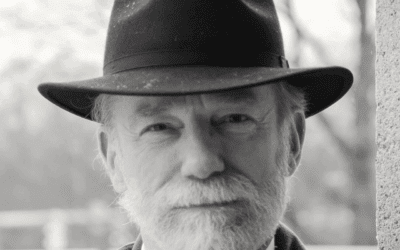Interdisciplinary Insights from Philosophy, Anthropology, and Therapy

The ethics of care is a moral philosophy that emphasizes the importance of empathy, compassion, attentiveness, and responsibility in human relationships. It challenges traditional Western ethical theories that prioritize abstract principles, individual rights, and impartial reasoning. Instead, care ethics recognizes the centrality of caring relations in human life and moral development. This article delves into the interdisciplinary connections between care ethics and the fields of philosophy, anthropology, and psychotherapy.
The Philosophical Foundations of Care Ethics
Care ethics emerged as a distinct philosophical approach in the 1980s through the work of feminist philosophers such as Carol Gilligan, Nel Noddings, and Sara Ruddick. In her groundbreaking book “In a Different Voice,” Gilligan (1982) criticized Lawrence Kohlberg’s theory of moral development for privileging a masculine ethics of justice based on individual rights and universal principles. She argued that there is a “different voice” of moral reasoning, more common among women, that focuses on preserving relationships, attending to particular contexts, and addressing the needs of specific others.
Nel Noddings (2013) further developed the philosophical underpinnings of care ethics in books like “Caring: A Relational Approach to Ethics and Moral Education.” For Noddings, caring is rooted in the basic human need to be cared for and the innate capacity to care for others. Ethical caring involves engrossment in the other’s reality, motivational displacement to act on their behalf, and a commitment to maintaining the caring relation. Noddings emphasized that caring is not just a feeling but a practice that requires cultivation, especially in the context of education.
Virginia Held (2005) expanded the scope of care ethics to encompass political and global issues in her book “The Ethics of Care: Personal, Political, and Global”. She argued that care should be the guiding framework for policies related to child-raising, healthcare, education, eldercare, and international development aid. An ethics of care recognizes the interdependence of persons and prioritizes meeting the needs of the most vulnerable.
Anthropological Perspectives on Caregiving
Anthropologists study the diversity of caregiving practices across cultures and historical periods. They examine how different societies organize care labor and imbue it with social and symbolic meanings. Kinship systems define the roles and responsibilities of caregivers, from parents and grandparents to siblings and extended family members. Anthropological research reveals the importance of alloparenting – caregiving provided by individuals other than biological parents – in human evolution and child development (Hrdy, 2011).
In many traditional societies, elders are venerated for their wisdom and experience. They are cared for within multigenerational households and play an active role in mentoring the young (Keith et. al, 1994). Rituals of care, such as rites of passage and healing ceremonies, affirm the value of elders and facilitate the transfer of knowledge between generations. Urbanization, modernization, and changing family structures have disrupted these traditional patterns of care in many parts of the world, leading to ambivalent attitudes toward aging and eldercare.
Anthropologists have also critically examined the power dynamics and cultural assumptions embedded in institutionalized forms of care. In “Death Without Weeping,” Nancy Scheper-Hughes (1993) portrayed the dehumanizing conditions in Brazilian nursing homes and mental hospitals. She argued that these institutions reproduce social inequalities and devalue the lives of the poor and marginalized. Similarly, disability activists and scholars have challenged the medical model of disability that focuses on individual impairments rather than societal barriers to access and inclusion (Block et al., 2015).
Care Ethics in the Therapeutic Relationship
The therapeutic relationship is a quintessential caring relation that involves vulnerability, trust, and emotional attunement. Psychotherapists are entrusted with providing a holding environment in which clients can safely explore their inner worlds, work through past traumas and present challenges, and develop greater self-understanding and relational capacities. An ethics of care is implicit in humanistic approaches to therapy that emphasize empathy, unconditional positive regard, and being fully present with the client (Rogers, 1961).
Attachment theory, originated by John Bowlby (1982), provides a developmental framework for understanding the impact of early caregiving experiences on psychological functioning throughout life. Sensitive and responsive caregiving fosters secure attachment, while neglectful or abusive caregiving can lead to anxious, avoidant, or disorganized attachment styles. Attachment-based therapies aim to provide a corrective emotional experience that challenges negative relational expectations and promotes earned security (Wallin, 2015).
Relational and intersubjective approaches to psychotherapy, influenced by feminist thought, view the therapeutic relationship as a collaborative, co-constructed “third space” (Benjamin, 2017). In this space, both therapist and client mutually recognize each other’s subjectivity and capacity for growth. Therapists bring their own histories, identities, and vulnerabilities into the encounter, and their countertransference responses offer valuable information about the client’s relational patterns. An ethics of care in this context involves negotiating boundaries, repairing ruptures, acknowledging the impact of sociocultural power dynamics, and working through enactments.
Spiritual Dimensions of Care
Care ethics has affinities with spiritual and contemplative traditions that cultivate compassion, mindfulness, and reverence for all life. In Buddhist philosophy, the bodhisattva ideal represents the pinnacle of care – an enlightened being who vows to liberate all sentient beings from suffering. Buddhist practices like loving-kindness meditation (metta) extend care beyond one’s immediate circle to encompass all of humanity and even one’s enemies (Salzberg, 2002).
In many indigenous worldviews, the earth itself is seen as the ultimate source of care, providing sustenance, healing, and spiritual connection. Rituals and ceremonies honor the interdependence of human and more-than-human worlds (Kimmerer, 2013). Ecopsychologists and ecotherapists draw on this wisdom to foster care for the environment as an extension of care for self and community (Roszak et al., 1995).
The ethics of care also intersects with the principles of servant leadership, which emphasize empathy, stewardship, and commitment to the growth of others (Greenleaf, 2002). In healthcare settings, spiritual care providers and chaplains embody a caring presence for patients grappling with illness, loss, and existential suffering (Cadge, 2013). The medical humanities and narrative medicine movements recognize the importance of eliciting and honoring patient stories as a form of empathic care (Charon, 2008).
The ethics of care offers a rich framework for understanding and practicing care across personal, professional, societal, and ecological contexts. As an interdisciplinary endeavor, care ethics integrates insights from philosophy, anthropology, psychology, and spirituality to illuminate the central role of caring in human development, culture, and morality. Therapists, healthcare providers, educators, and leaders can all benefit from engaging with the ethics of care to cultivate more compassionate and responsive ways of being with others. Ultimately, an ethics of care reminds us of our shared vulnerability, interdependence, and potential to support each other’s flourishing.
References:
Benjamin, J. (2017). Beyond doer and done to: Recognition theory, intersubjectivity and the third. Routledge.
Block, P., Kasnitz, D., Nishida, A., & Pollard, N. (Eds.). (2015). Occupying disability: Critical approaches to community, justice, and decolonizing disability. Springer.
Bowlby, J. (1982). Attachment and loss: Vol. 1. Attachment (2nd ed.). Basic Books.
Cadge, W. (2013). Paging god: Religion in the halls of medicine. University of Chicago Press.
Charon, R. (2008). Narrative medicine: Honoring the stories of illness. Oxford University Press.
Gilligan, C. (1982). In a different voice: Psychological theory and women’s development. Harvard University Press.
Greenleaf, R.K. (2002). Servant leadership: A journey into the nature of legitimate power and greatness. Paulist Press.
Held, V. (2005). The ethics of care: Personal, political, and global. Oxford University Press.
Hrdy, S.B. (2011). Mothers and others: The evolutionary origins of mutual understanding. Harvard University Press.
Keith, J., Fry, C.L., & Ikels, C. (1994). The aging experience: Diversity and commonality across cultures. SAGE Publications.
Kimmerer, R.W. (2013). Braiding sweetgrass: Indigenous wisdom, scientific knowledge and the teachings of plants. Milkweed Editions.
Noddings, N. (2013). Caring: A relational approach to ethics and moral education (2nd ed.). University of California Press.
Rogers, C.R. (1961). On becoming a person: A therapist’s view of psychotherapy. Houghton Mifflin.
Roszak, T., Gomes, M.E., & Kanner, A.D. (Eds.). (1995). Ecopsychology: Restoring the earth, healing the mind. Sierra Club Books.
Salzberg, S. (2002). Lovingkindness: The revolutionary art of happiness. Shambhala.
Scheper-Hughes, N. (1993). Death without weeping: The violence of everyday life in Brazil. University of California Press.
Wallin, D.J. (2015). Attachment in psychotherapy. Guilford Press.


























0 Comments